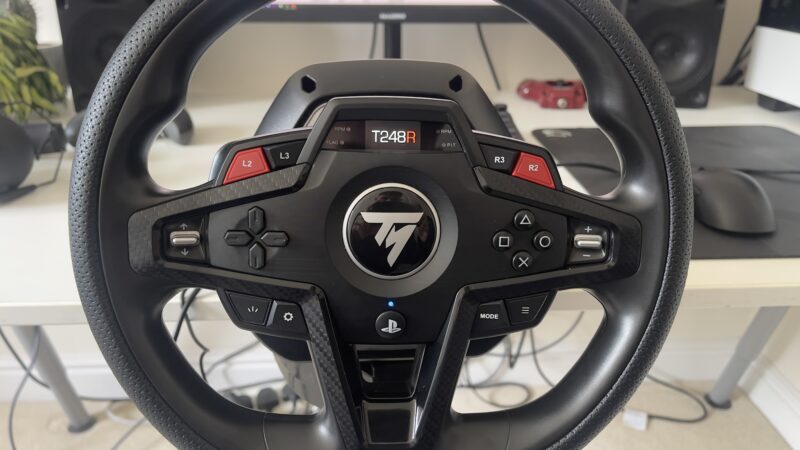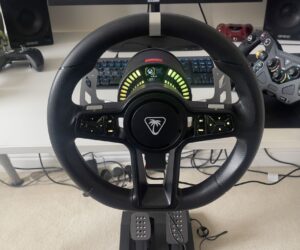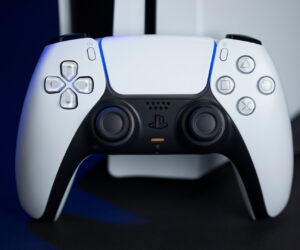Why you can trust TechRadar
We spend hours testing every product or service we review, so you can be sure you’re buying the best. Find out more about how we test.
Thrustmaster T248R: One-minute review
It’s not a new racing wheel you’re looking at here, but instead a revamped and thoughtfully tweaked 2025 edition of the existing Thrustmaster T248. The youthful maverick that is the T248R features many small but noticeable improvements, including a visual facelift, upgraded gear shift paddles, and a sharper digital display that offers genuinely useful readouts.
As for the tech powering your driving sensation, that’s a double-edged sword. On one hand, it’s a downside that the T.HD wheelbase is built on a hybrid of gear and belt-driven feedback, which can’t compete with direct drive for smooth, fast, precise feedback.
And with the price of direct drive bundles tumbling down lately into price points not that much more than the price of this bundle, that’s definitely a major consideration for anyone hovering over the ‘add to cart’ button.
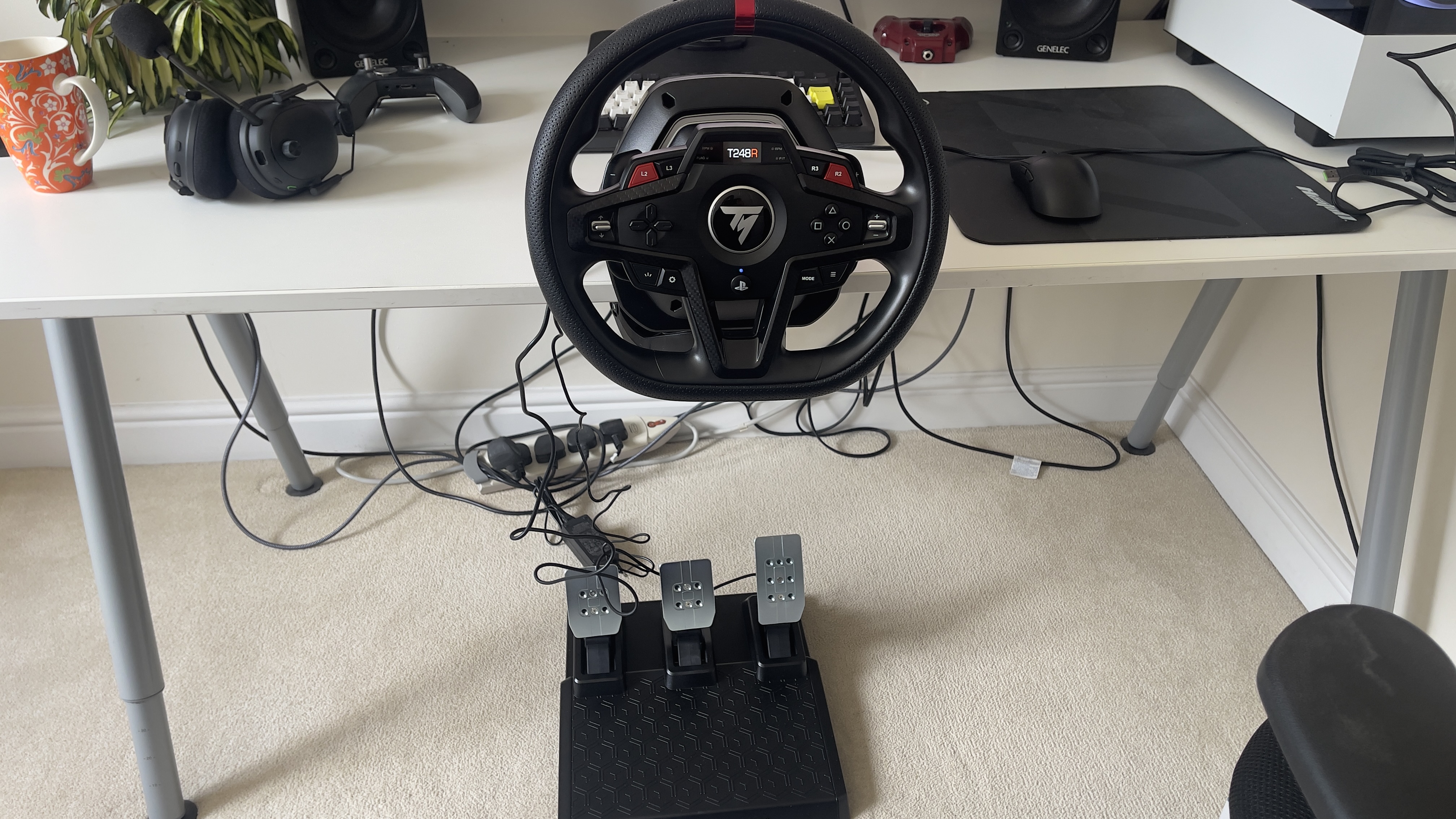
On the other hand, nobody does belt-driven feedback quite like Thrustmaster, so the driving sensation you actually get out of this wheel in your hands isn’t anything as old-fashioned as you might imagine.
It’s plenty powerful for the entry-level sim racer it’s designed for, outputting a peak 3.1Nm of torque, and there’s some subtlety to the feedback too, which doesn’t produce a detrimental amount of cogging (that grindy, stuttering feeling associated with older belt-driven feedback).
Down at your feet, the pedal base is everything you could ask for at this price. It stays where you put it, even on a carpeted floor; the three pedals are well-spaced apart from each other, and the brake has a satisfying amount of stamping force thanks to its stiff load cell.
It’s a wheel to be recommended, ultimately, but it’s a qualified recommendation. If the cheapest direct drive wheels like the Nacon Revosim or the Thrustmaster T598 are out of budget, or you simply don’t race enough to justify the extra outlay for the improved sensation, this bundle makes a lot of sense.
That’s even factoring in the great Logitech G923, a true titan of non-direct drive wheels at the sub-$300 mark. Logi’s wheel offers slightly better build quality, and its TrueForce feedback offers impressive detail, but those are marginal gains over this dependable and well-priced T248R.
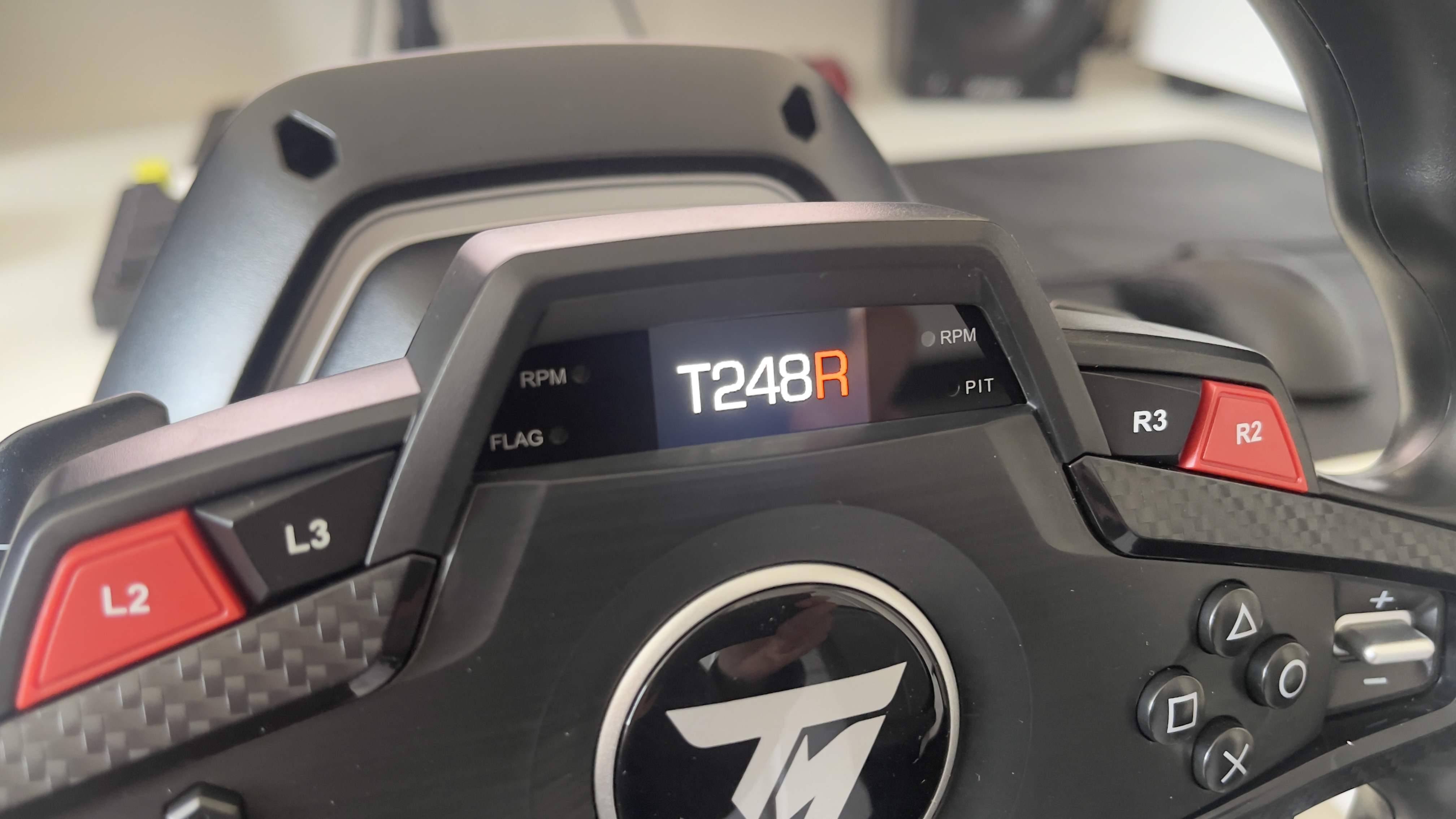
Thrustmaster T248R: Price and availability
- List price: $349.99 / £249.99 (around AU$512)
- Priced cheaper than outbound T248 and Logitech’s G923
- It may be old tech, but it still offers great bang for buck
Price is a vital bit of context here. It’s true that direct drive (DD) is becoming much more affordable, with bundles like Nacon’s Revosim and the fantastic T598 from Thrustmaster’s own stable bringing high-quality DD sensation to the masses at a price point below $500. But this T248R’s pricing is so far below that $500 threshold that a belt and gear-driven bundle is still a worthwhile consideration.
That does mean the looks and finish quality do feature some obvious compromises compared to the G923. But with a crystal-clear digital display, nice tactile buttons, quiet shifters, and a high-quality set of pedals, there’s real value here. The build quality and driving experience are more than enough for casual racers and even more committed enthusiasts on a budget.
Thrustmaster T248R: Specs
Thrustmaster T248R: Design and features
- Well built, if a little plasticky
- Pleather wheel feels great
- Useful display
Thrustmaster has been making the T248 in its various iterations for long enough to know that its audience isn’t likely to be attaching it to a sim rig, so it’s sensibly built both the wheel and pedals to be used comfortably at a desktop. The pedal base is heavy and grippy, which is absolutely crucial for an enjoyable drive.
The last thing you want when you’re stamping on a load cell brake at 180mph in Assetto Corsa Competizione is to feel the whole base shift position or rotate, and happily, there’s next to none of that with this bundle, despite a relatively stiff load cell on the brake. The aluminium contact points on the pedals are a nice touch at this price, too.
Working our way up, the wheelbase and wheel itself show a few more concessions to the affordable price point. Primarily, all the plastic. Although it’s a definite upgrade versus the outgoing T248 (which will still be on sale in Xbox config, as this new T248R supports PC, PS4, and PS5 only, so is targeting the best PS5 racing wheel market), there is still a lot of quite light, flimsy plastic used on the face, inner wheel, and hub.
Thrustmaster’s done its best to disguise some of this with a carbon fiber-style weave effect, but realistically, it’s fooling no one. Personally, for this price, I can live with it, but it’s worth noting that the slightly pricier G923 does look and feel more substantial and somehow, well, more pro.
Buttons are laid out sensibly around the centre, and at the top there’s a digital display with a sharper resolution now, which can give you some really useful readouts and telemetry – a definite perk for the price.
The biggest weakness in the T248’s overall design comes in the desktop clamp. There’s no major issue here – it does its job in keeping the wheel fixed in position on your desk, but now with the same rigidity or assuredness as the G923, whose two tightening screws at either side of the wheelbase lock it tightly in position. Here, there’s just one central screw, and while it does keep out of the way of your legs, it’s not as secure a contact point as Logitech’s.
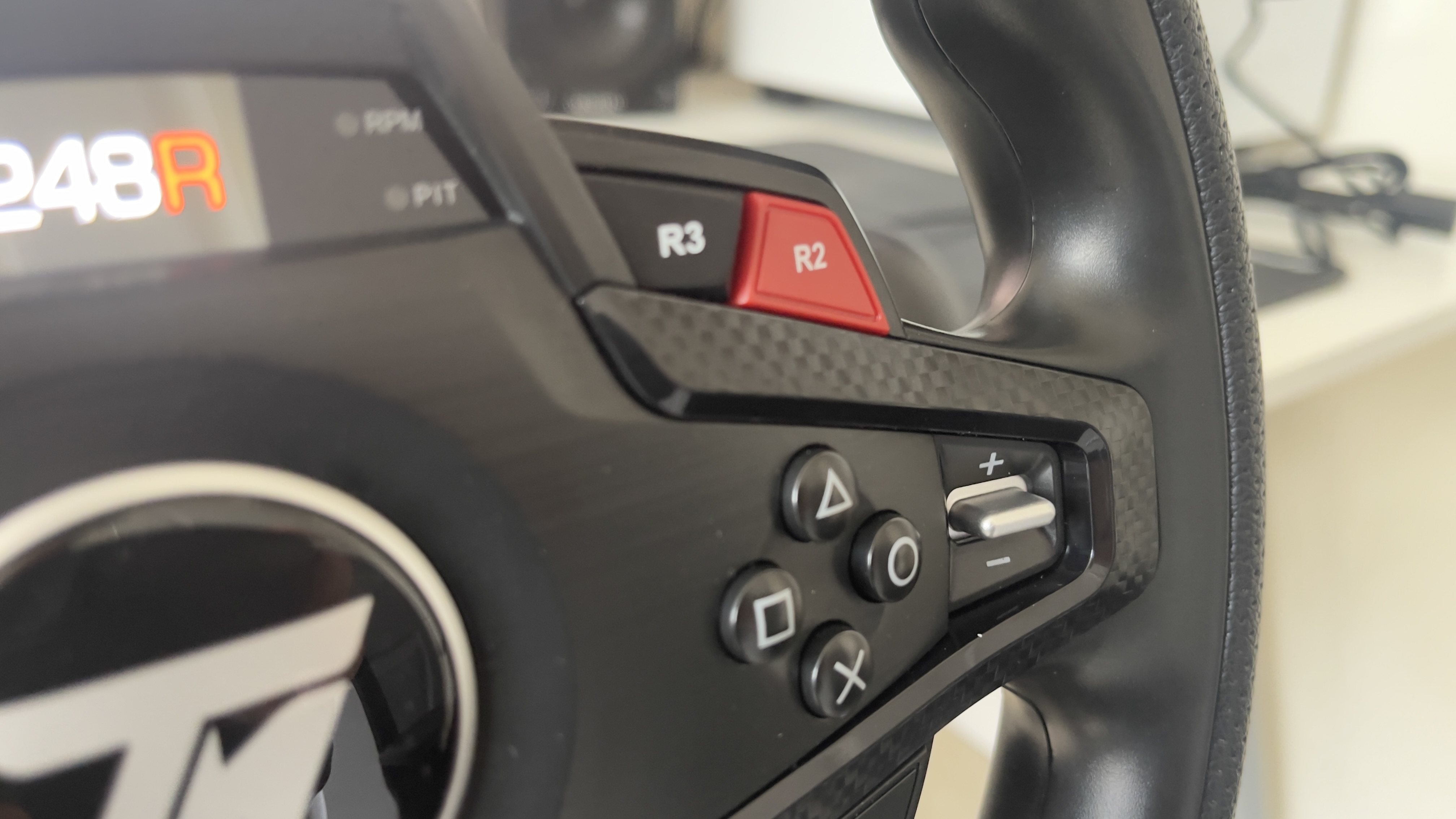
Thrustmaster T248R: Performance
- Plenty of power
- A pleasing sensation considering the older tech
- Buttons, shifters, and pedals all feel great while driving
How does it feel to drive a lap with this updated model?
Well, firstly, it’s pretty straightforward to get onto the track in the first place, since most games recognise this as either the older T248 or the TGT wheel. That means you’ve got default assignments for inputs across the wheel, and pretty good axis and force feedback values from the off. Every title I tried with this new model was recognised enough that all my mappings were done for me, and I didn’t need to calibrate the wheel axis by axis.
On the track, Thrustmaster’s unique hybrid of belt and gear-driven force feedback shows its merits. It does feel very different to direct drive – it’s nowhere near as smooth to rotate the wheel, for starters. But it’s also not coggy or rough in the way that older traditional belt-driven models (remember the MOMO Force?) used to be.
Instead, you’ve got a happy medium between smooth wheel actuation and rumbly feedback that feels about right for the price point. Does it offer the same variety of feedback types as Logitech’s TrueForce-enabled G29? It does not.
The Logi wheel conveys tarmac rumble a little better and gives a more convincing sense of weight to the vehicle you’re driving, but that doesn’t really have a meaningful effect on lap times.
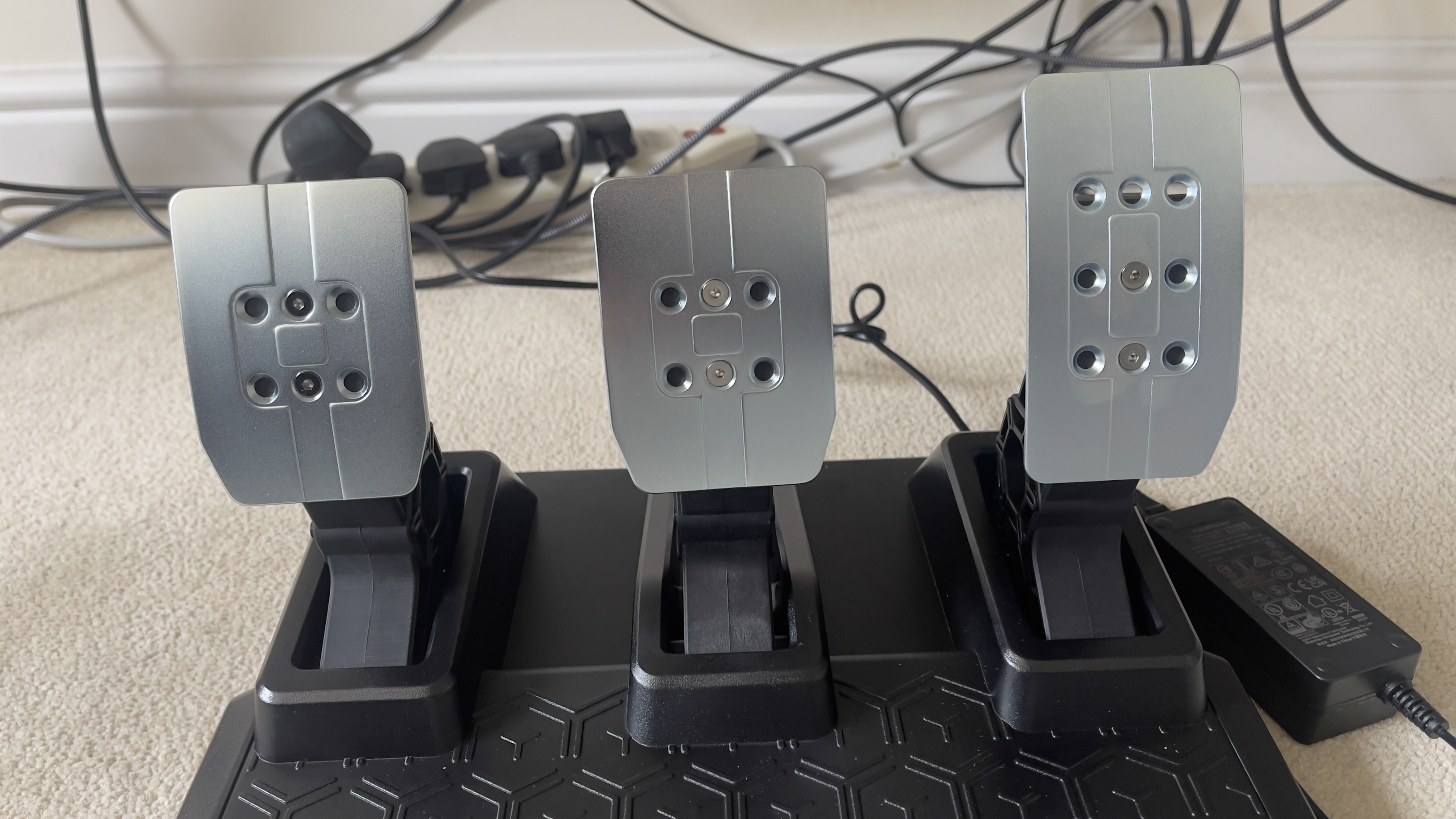
I noticed how well built the input buttons feel as I was driving, too. It’s common for the face buttons – translated from a traditional console controller and arranged around the wheel – to feel loose and flimsy on a lower-end wheel, but here they feel higher quality. You’re always sure that a button input was registered properly.
It’s a small tweak, but the magnetic paddle shifters have been lavished with some redesign attention to produce a smoother, quieter shift. I’d say more than that, it just feels nicer than it did to change gears on the older T248.
Speaking of, previously the digital display was monochrome and had a limited viewing angle, but it’s much sharper now and thus much more useful. You don’t have a dynamic rev counter, but you do have an RPM light that lets you know when it’s time to upshift. While on the main display, you might have your current lap deltas.
I’m a particular fan of the pedals, and they contribute a lot to the quality of the driving experience in this bundle. It’s great to have a load cell brake that can be adjusted for stiffness by swapping elastomers and springs in, and equally great to feel so planted when you exert a pedal input.
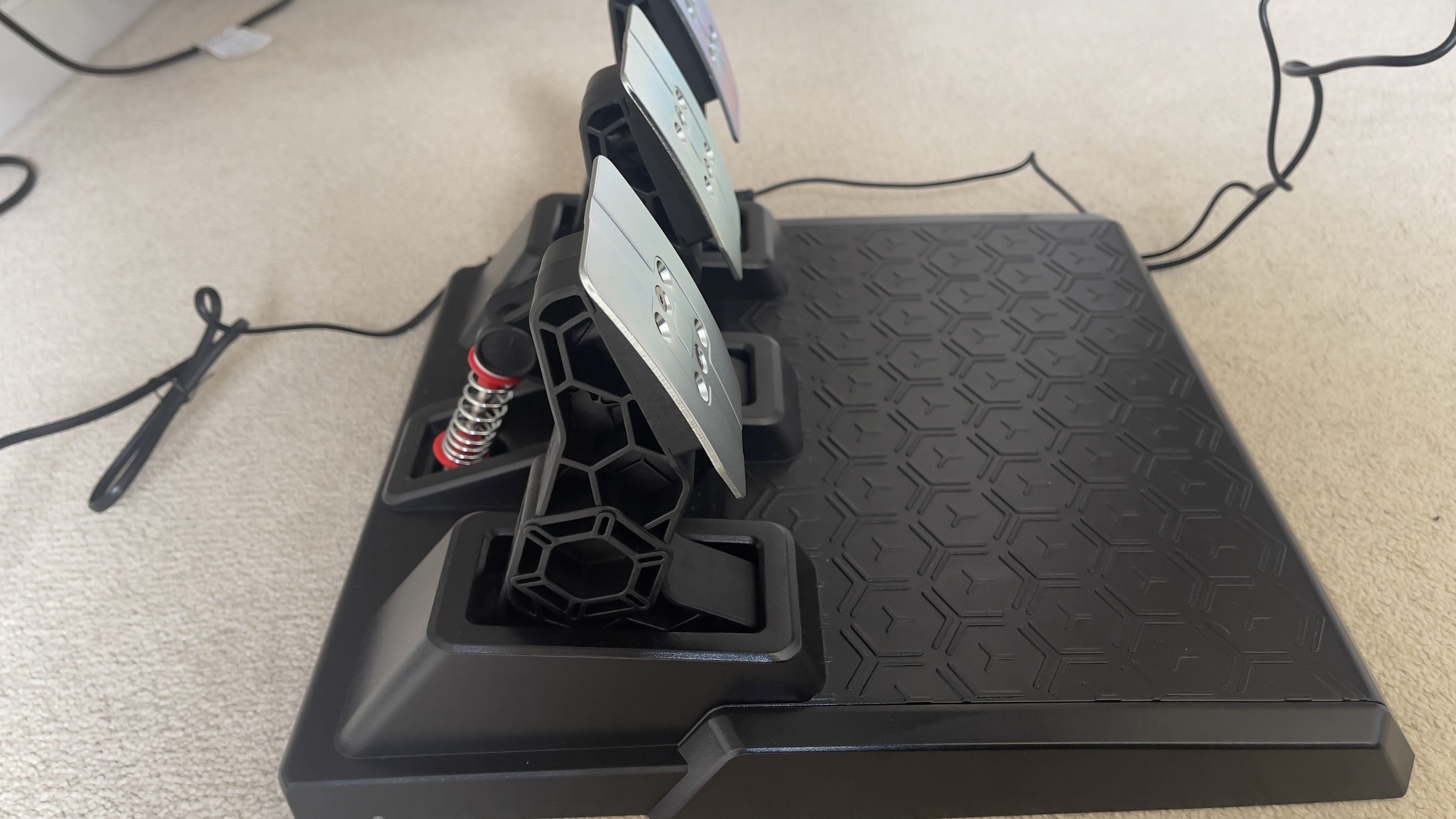
Should I buy the Thrustmaster T248R?
Buy it if…
Don’t buy it if…
Also consider
If the Thrustmaster T248R doesn’t hit your apex, try these similarly priced rivals.
| Row 0 – Cell 0 |
Thrustmaster T248R |
Logitech G923 |
Hori Apex |
|
Price |
$349.99 / £249.99 (around AU$512) |
$299.99 / £299.99 |
$119.99 / £99.99 |
|
Weight |
12.6lb / 5.7kg |
4.96lbs / 2.3kg |
3.09lbs / 1.4kg |
|
Peak torque |
3.1Nm |
2.2Nm |
N/A |
|
Features |
Digital display, load cell brake pedal, magnetic shifters, cushioned pleather wheel finish |
TrueForce feedback, dial controls, rev display |
Textured wheel grip, simple setup |
|
Connection type |
USB-A |
USB-A |
USB-A |
|
Compatibility |
PC, PlayStation 4, PlayStation 5 |
PlayStation 5, PlayStation 4, PC, or Xbox Series X/S, PC |
PlayStation 4, PlayStation 5, PC |
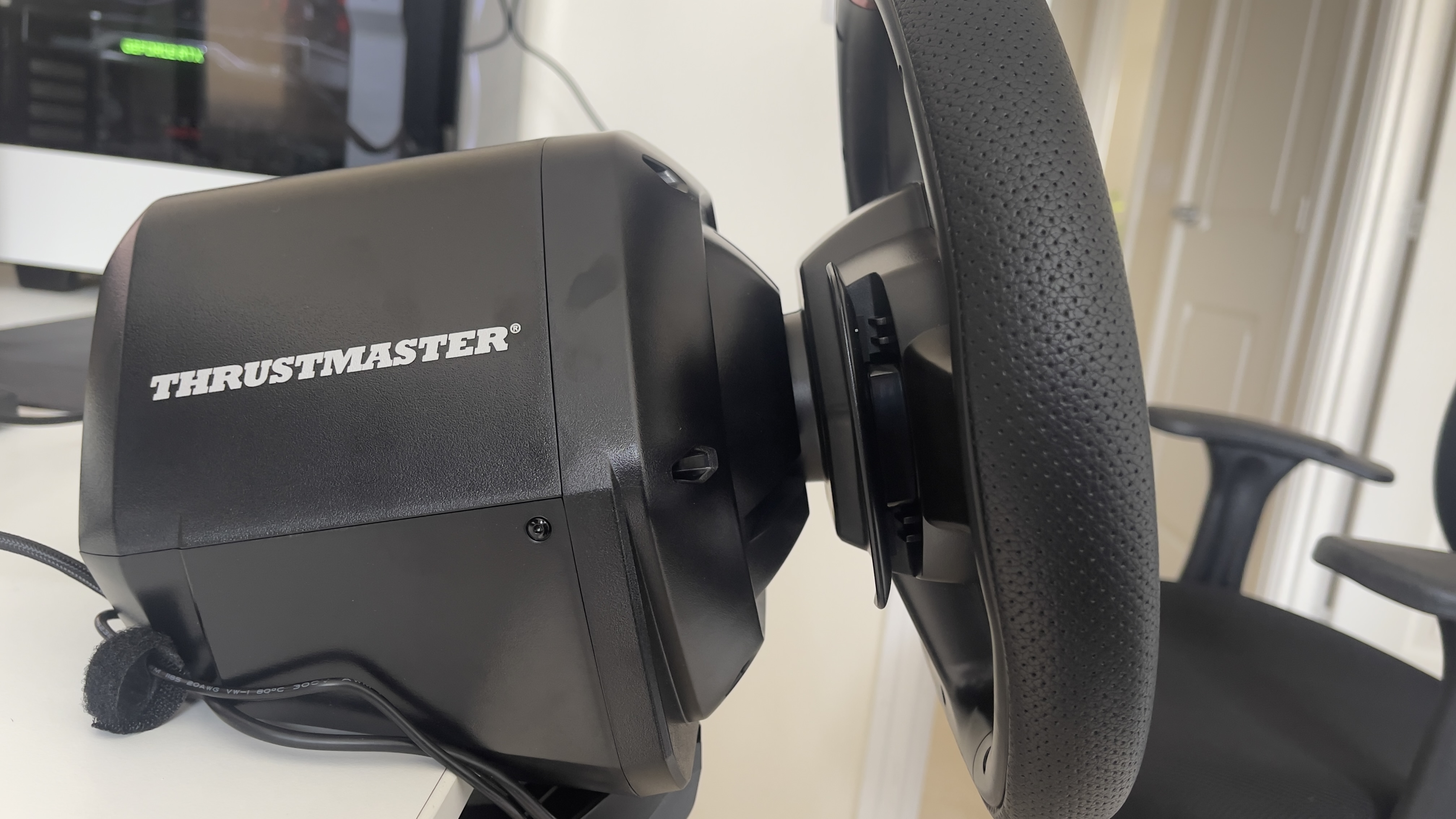
How I tested the Thrustmaster T248R
- Tested in F1 24, F1 25, Rennsport, ACC, and AC Evo
- Two weeks with a desktop
- A variety of FF strength settings tried
I loaded up my usual racing titles to test this updated T248R wheel, since I’m already familiar with how they feel with a variety of both belt-driven and direct drive wheels.
Happily, every title recognised the wheel to some degree and offered sensible default mappings and values.
There’s a range of different force feedback strength levels available here via Thrustmaster’s ‘BOOST’ tech, although in practice, that’s no different from adjusting the strength of any other wheel via the in-game settings or manufacturer app. Nevertheless, I adjusted to different strengths during testing.
Finally, and importantly, all testing was conducted at a desktop setup, since this bundle can’t easily be mounted onto a sim rig like my Playseat.
First reviewed September 2025

